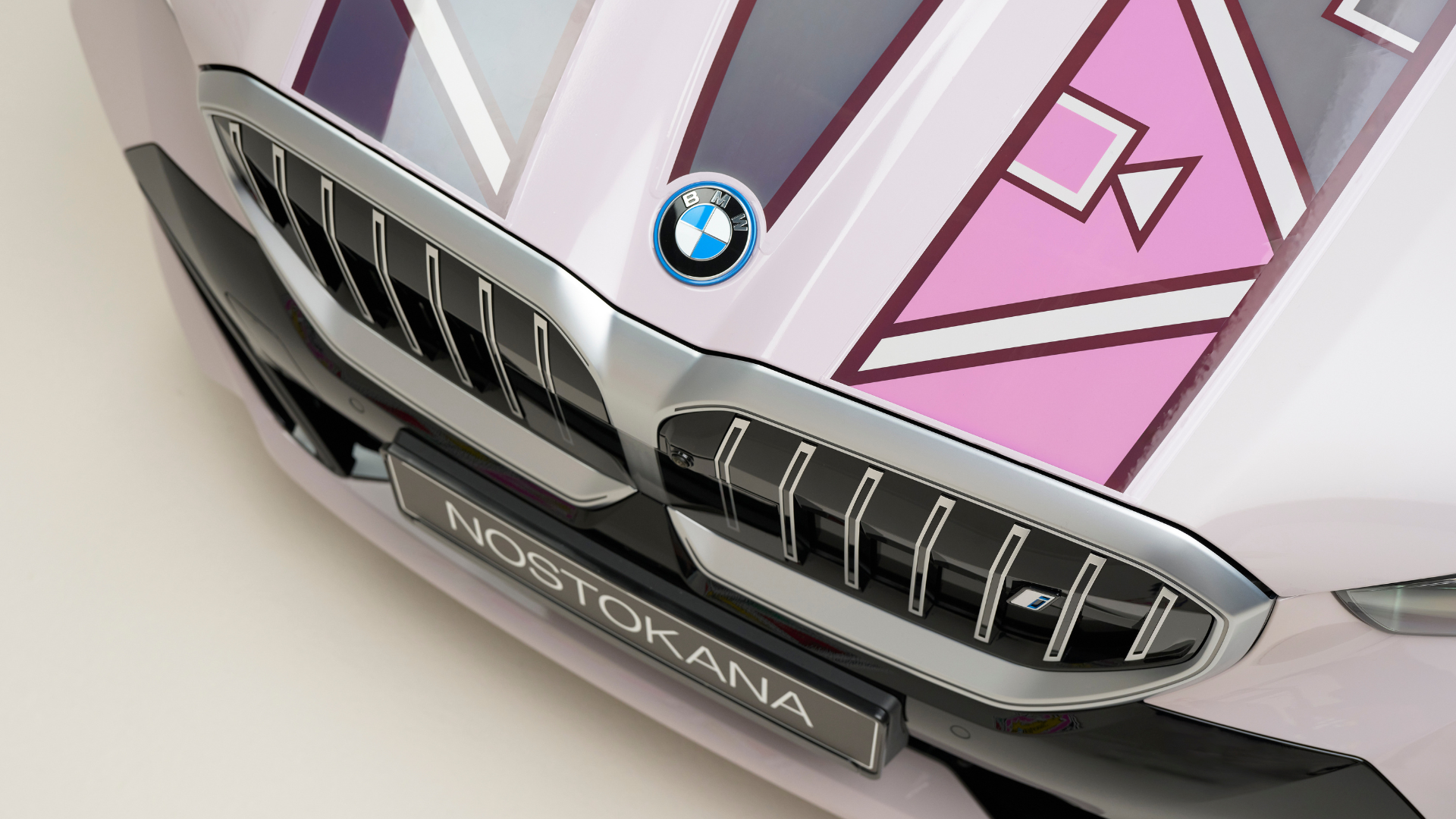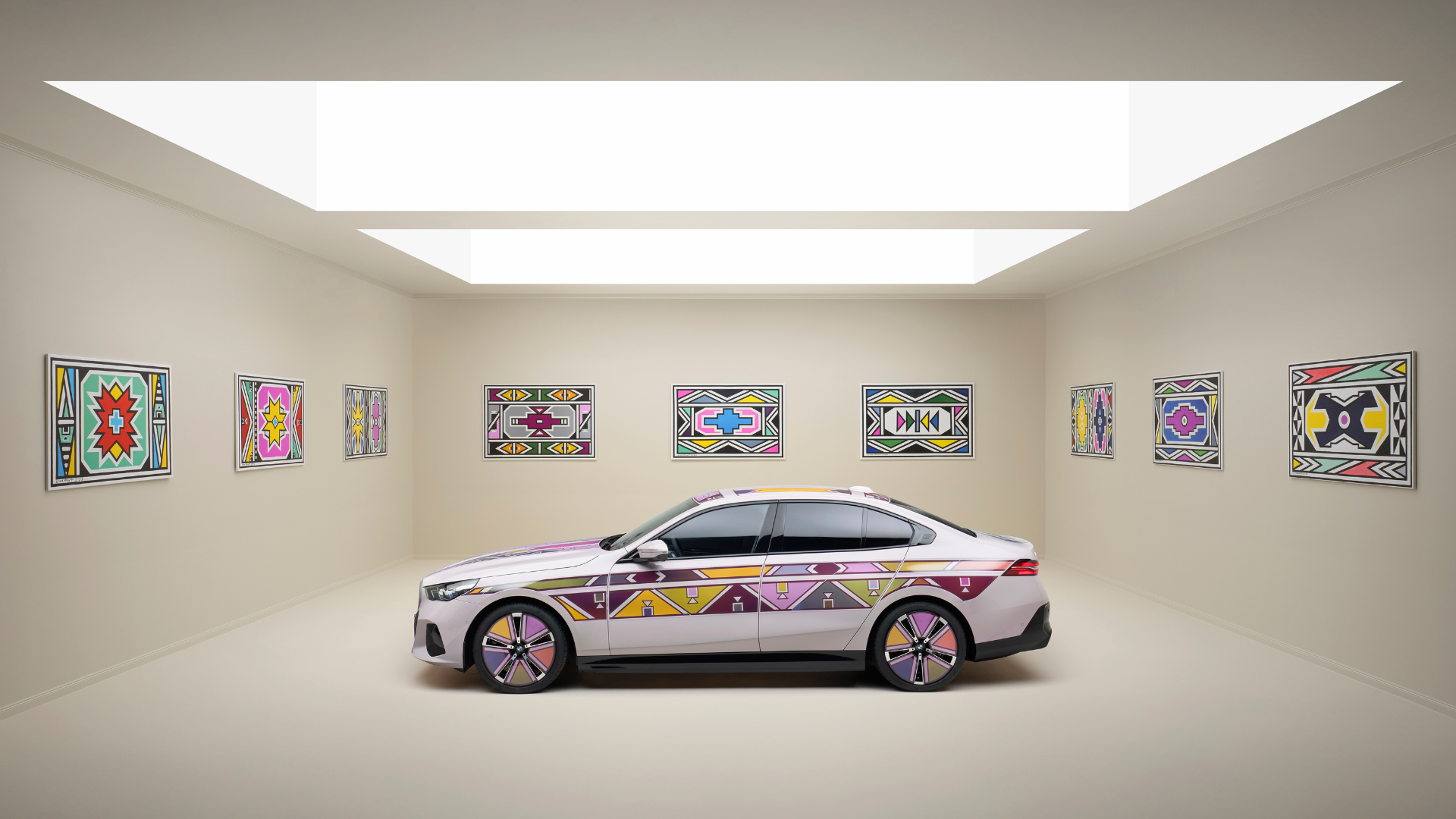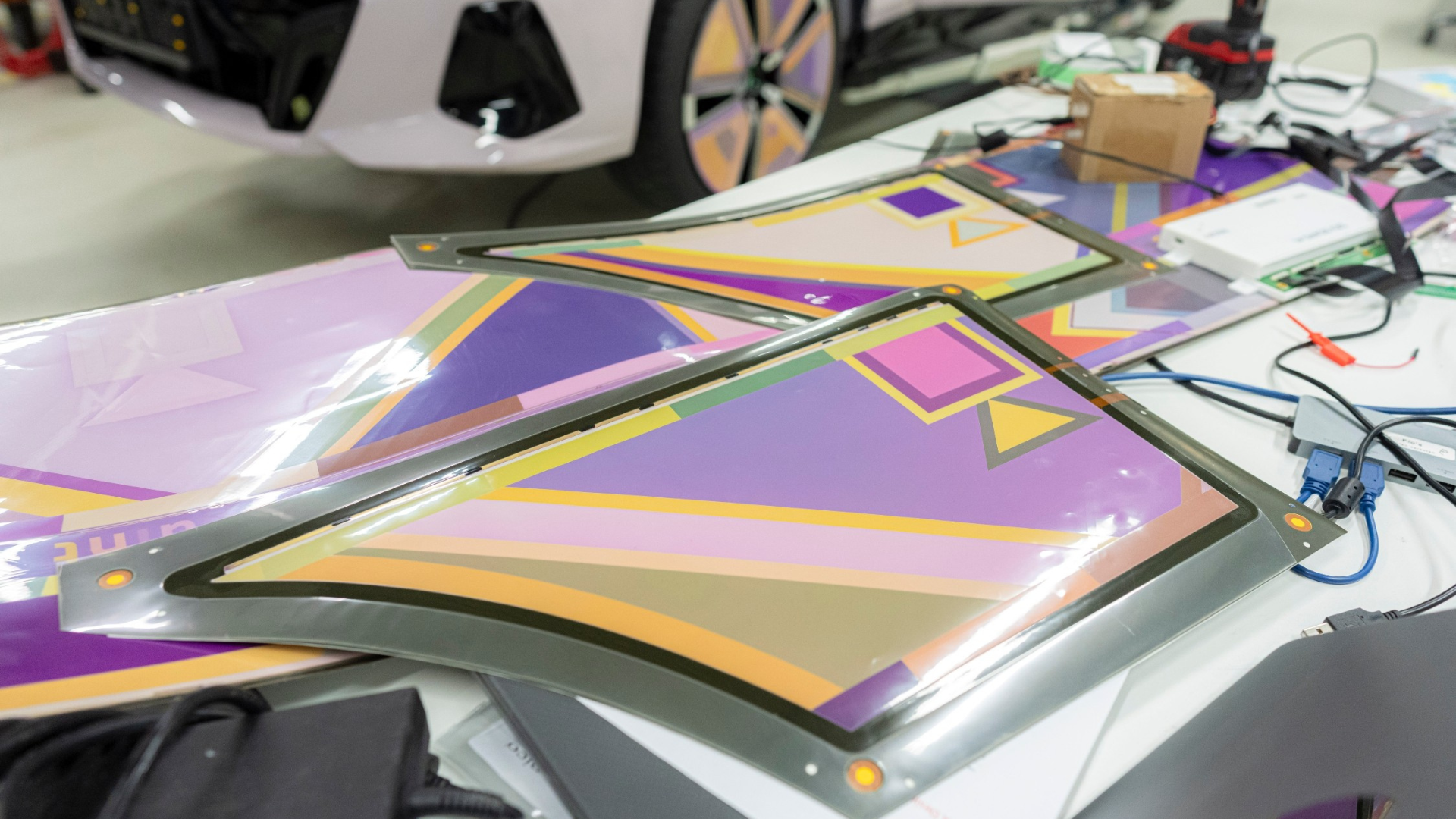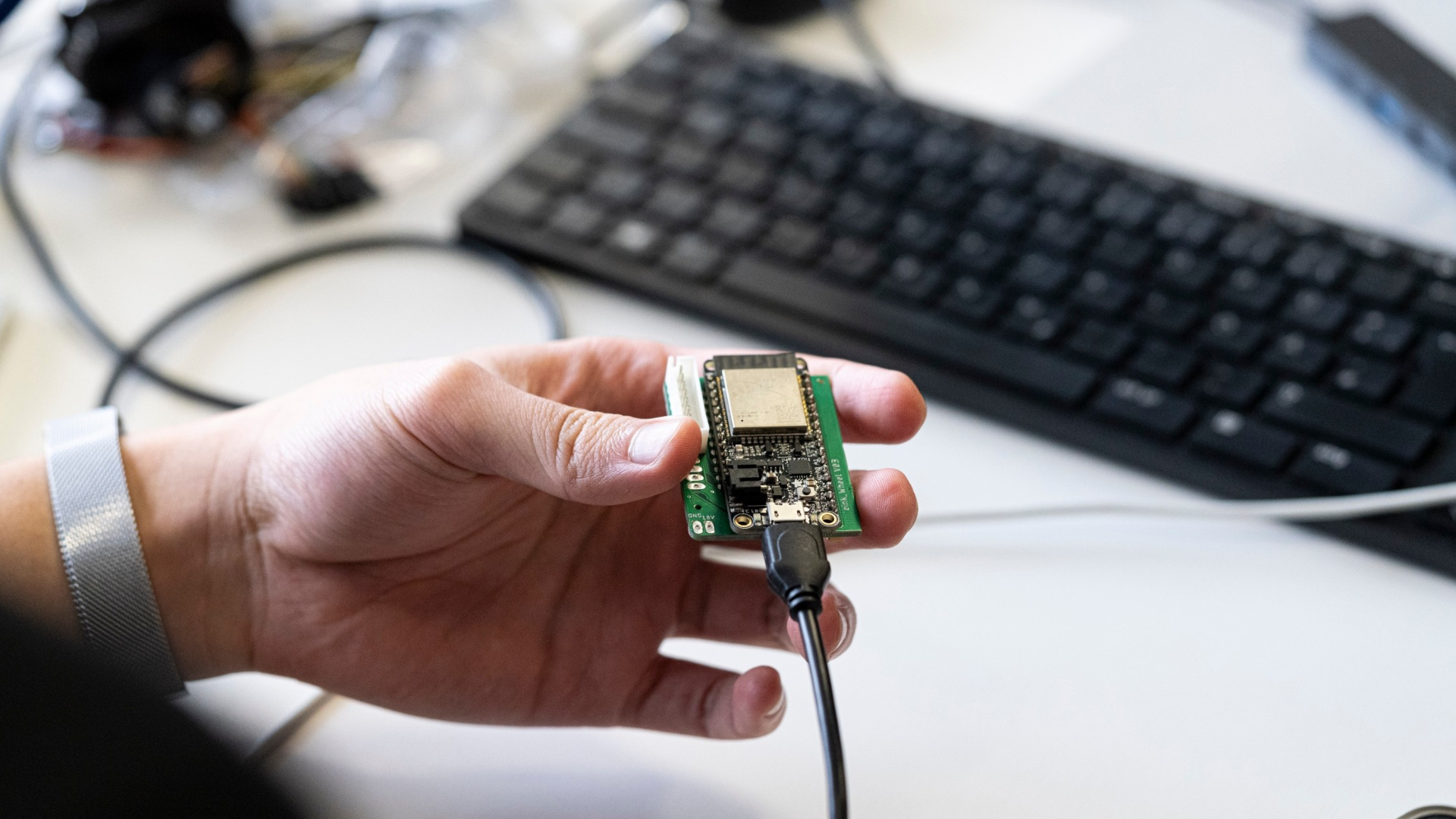

Once again, BMW has partnered with international art fair Frieze Los Angeles to display its custom designer cars. This year, the brand unveiled its new BMW i5 Flow Nostokana with electronically animated panels in a South African tribal pattern.
South African artist Esther Mahlangu worked with BMW to design the creation, naming it after her firstborn son. Born in South Africa in 1936, Mahlangu is a world-renowned artist focused on Ndbele designs, primarily found in the Limpopo and Mpumalanga provinces of South Africa. She first worked with the German brand back in 1991 to paint a 525i as the first African and female artist to sign an art car. The artist painted directly on the all-white car, completing the design in just under a week.

For this project, Mahlangu worked with Stella Clarke, Research Engineer Open Innovations at the BMW Group. Clarke says the artist’s work inspired her years ago, back when the concept of color change on a car was just an idea in her head.
The car was fitted with 1,349 sections of film, each individually controlled. Using technology from E Ink, the panels include several million microcapsules in each piece of film. By applying an electric voltage, the color particles can be changed through the process of electrophoresis (the transport of molecules through a fluid or gel under the influence of an electric field, per IEEE Spectrum). The result is a vibrant, colorful, techie-cool piece of art one might not expect to see on a BMW.



A custom soundtrack that includes Mahalngu’s voice, the swish of the feather brushes the artist uses for painting, the sound of color pencils on paper, and the acoustic signal from the 525i’s touchscreen was matched to the animation. The accompaniment was produced by BMW Group’s Creative Director of Sound Renzo Vitale, and he engineered it to start softly and then grow louder along with the intensity of the colors.
Clearly, this is a one-off project that takes a lot of work behind the scenes. But as both BMW and Volkswagen have shown in the last couple of years, color-changing technology is on the move. Integrating international artwork with technology is a cool concept and I’m looking forward to seeing more.





Got a story idea? Send it here: tips@thedrive.com.